第82章 IV(15)
Now the feeling is very apt to be just contrary to this. The habit has been very general with well-taught practitioners, to have recourse to the introduction of these alien elements into the system on the occasion of any slight disturbance. The tongue was a little coated, and mercury must be given; the skin was a little dry, and the patient must take antimony. It was like sending for the constable and the posse comitatus when there is only a carpet to shake or a refuse-barrel to empty. [Dr. James Johnson advises persons not ailing to take ,five grains of blue pill with one or two of aloes twice a week for three or four months in the year, with half a pint of compound decoction of sarsaparilla every day for the same period, to preserve health and prolong life. Pract. Treatise on Dis. of Liver, etc. p. 272.] The constitution bears slow poisoning a great deal better than might be expected; yet the most intelligent men in the profession have gradually got out of the habit of prescribing these powerful alien substances in the old routine way. Mr. Metcalf will tell you how much more sparingly they are given by our practitioners at the present time, than when he first inaugurated the new era of pharmacy among us. Still, the presumption in favor of poisoning out every spontaneous reaction of outraged nature is not extinct in those who are trusted with the lives of their fellow- citizens. "On examining the file of prescriptions at the hospital, I discovered that they were rudely written, and indicated a treatment, as they consisted chiefly of tartar emetic, ipecacuanha, and epsom salts, hardly favorable to the cure of the prevailing diarrhoea and dysenteries." In a report of a poisoning case now on trial, where we are told that arsenic enough was found in the stomach to produce death in twenty-four hours, the patient is said to have been treated by arsenic, phosphorus, bryonia, aconite, nux vomica, and muriatic acid,--by a practitioner of what school it may be imagined.
The traditional idea of always poisoning out disease, as we smoke out vermin, is now seeking its last refuge behind the wooden cannon and painted port-holes of that unblushing system of false scientific pretences which I do not care to name in a discourse addressed to an audience devoted to the study of the laws of nature in the light of the laws of evidence. It is extraordinary to observe that the system which, by its reducing medicine to a name and a farce, has accustomed all who have sense enough to see through its thin artifices to the idea that diseases get well without being "cured," should now be the main support of the tottering poison-cure doctrine. It has unquestionably helped to teach wise people that nature heals most diseases without help from pharmaceutic art, but it continues to persuade fools that art can arrest them all with its specifics.
It is worse than useless to attempt in any way to check the freest expression of opinion as to the efficacy of any or all of the "heroic" means of treatment employed by practitioners of different schools and periods. Medical experience is a great thing, but we must not forget that there is a higher experience, which tries its results in a court of a still larger jurisdiction; that, namely, in which the laws of human belief are summoned to the witness-box, and obliged to testify to the sources of error which beset the medical practitioner. The verdict is as old as the father of medicine, who announces it in the words, "judgment is difficult." Physicians differed so in his time, that some denied that there was any such thing as an art of medicine.
One man's best remedies were held as mischievous by another. The art of healing was like soothsaying, so the common people said; the same bird was lucky or unlucky, according as he flew to the right or left."
The practice of medicine has undergone great changes within the period of my own observation. Venesection, for instance, has so far gone out of fashion, that, as I am told by residents of the New York Bellevue and the Massachusetts General Hospitals, it is almost obsolete in these institutions, at least in medical practice. The old Brunonian stimulating treatment has come into vogue again in the practice of Dr. Todd and his followers. The compounds of mercury have yielded their place as drugs of all work, and specifics for that very frequent subjective complaint, nescio quid faciam,--to compounds of iodine. [Sir Astley Cooper has the boldness,--or honesty,--to speak of medicines which "are given as much to assist the medical man as his patient." Lectures (London, 1832), p. 14.] Opium is believed in, and quinine, and "rum," using that expressive monosyllable to mean all alcoholic cordials. If Moliere were writing now, instead of saignare, purgare, and the other, he would be more like to say, Stimulare, opium dare et potassio-iodizare.